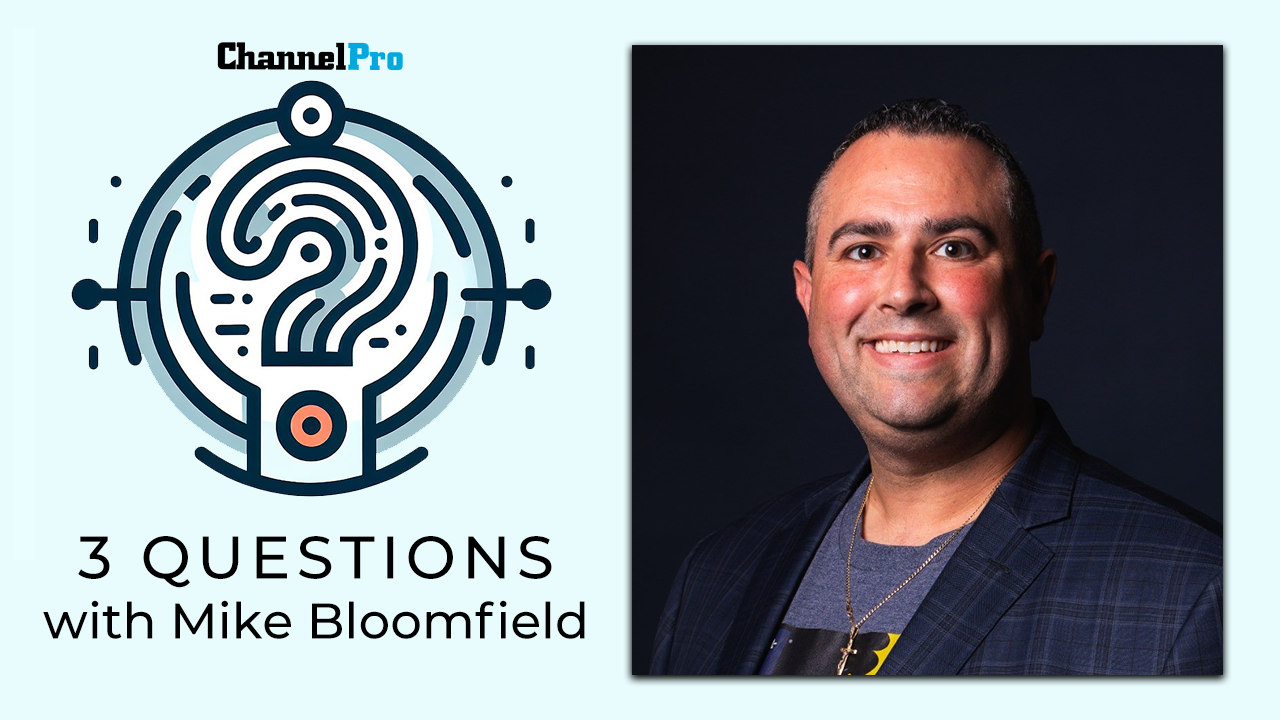Joanna Mirov had reached a point where the timing was ripe for her to step away from running her own business. The former owner of IT managed services company MXOtech saw other MSPs were selling their businesses for good profits. “I discovered that it was a good market to sell. Interest rates were still low, and people were interested in buying companies of our size,” she recalled.

Joanna Mirov
A friend connected Mirov with Ntiva, a larger MSP that initially declined the offer. Ntiva considered Mirov’s company, which had less than $5 million in revenue at the time, a bit too small for acquisition, she explained. But a few years later, MXOtech had grown to $8 million in revenue and 40 employees — and Ntiva was very interested. Today, Mirov works for Ntiva as a senior mergers and acquisitions advisor.
For some MSPs, it’s an “Aha” moment of realizing it’s time to cash in on their hard work. For others, it’s a slower realization. The business owners may be ready to retire or burned out. Perhaps they need the money that would result from a sale.
The reasons may vary, but any MSP mulling the idea of selling their business has many things to consider.
Key First Step: Determine Your Business Valuation
The first step in getting your business ready for sale is determining its value.
The most important metric is EBITDA (earnings before interest, tax, depreciation and amortization). Essentially, it shows how profitable the business is. Calculating EBITDA requires gathering key financial figures like revenue, operating expenses, depreciation, amortization, and monthly recurring revenue. Next, adjust it by excluding non-operating expenses like interest and taxes, along with depreciation and amortization expenses. The result is the company’s net income. Add that number to interest, taxes, depreciation and amortization to calculate EBIDTA.

Ian Richardson
Buyers ideally look for businesses at around $1 million EBIDTA, but some may be interested in businesses as low as $750K EBIDTA, shared Ian Richardson, former owner of a healthcare IT MSP who sold his MSP in 2021 and founded Fox & Crow Group LLC.
“If you’re at $1 million EBITDA and the market is hot, it’s easy to get multiple bids. And if you get the right team of advisors, you can play those bids against each other, just like selling your house.”
Recurring revenue is particularly important to calculate for MSPs. Buyers are motivated by a company’s number of clients — more is better — and the ratio of earnings to clients. “The companies interested in buying my business wanted to make sure I had long-term clients and contracts that would roll over,” Mirov said. “They also wanted to make sure we didn’t rely on just a few large clients. If, for example, you have $300,000 in monthly recurring revenue but $100,000 of that comes from one customer, that’s very risky. They don’t want that.”
Next Steps: Preparing Your Business for Sale
Customer retention rate is another important factor. Buyers like to see long-term customers that spend more with an MSP over time. Ideally, a single-digit churn rate on clients is attractive, Richardson added.
Before putting your business on the market, make sure you’re prepared. Determine your EBIDTA, and make sure you have contracts and financials organized. In addition to making your business easier to sell, this type of preparation may help you financially, advised Terry Rossi, former CEO and founder of PICS ITech, the managed services division of PICS.
“There are a lot of things you can do before you sell to minimize your tax implications in ways that will make it better for you financially,” said Rossi, who sold his business when he was approaching 60 years old — and was being pursued by suitors every day.
How to Put Your Business on the Market
There were many options to sell her business, but Mirov chose the do-it-yourself approach — with help. She turned early and often to a group of experienced MSPs she met with weekly. Mirov said she was able to glean insights from their experiences in selling their businesses by asking plenty of questions.
She also had existing ties to Ntiva, including three competitors that had already sold to the company, which helped with her learning curve.
Meanwhile, Rossi chose a combination approach. He started the process by attending a ConnectWise conference, where he participated in a “deal crawl” that brought buyers and sellers together in a room to pitch their offerings. He then turned the process over to an investment banker, who coordinated meetings with about 40 potential investors. That resulted in 10 offers, which Rossi whittled down to a few for final negotiations.

Terry Rossi
The Right Buyer
There are several different types of buyers, each with pros and cons. These include:
- Other MSPs: These typically are larger MSPs and possibly your direct competition.
- Individual investors: They seek ways to create predictable revenue and decide that buying an MSP is the right move.
- Private equity buyers: These often are venture capitalists who move fast, make aggressive offers, and usually look to make money by growing your company before selling it again.
- Existing employee(s): This is rare, but can happen.
Rossi chose to sell to a private equity firm. While some such buyers cut costs, raise prices, and disrupt the way employees work, that’s not always the case, he said. He did his due diligence and felt the buyer of his company was run by competent operators committed to growing the company while safeguarding it.
Meanwhile, Richardson sold to an employee. Success, he said, depends on the employee’s maturity. It requires recognizing where employee gaps are and fixing them before the sale. That means investing at least two years in building up those employees, educating them in financial knowledge, and having them involved in banking, legal, insurance, and wealth management conversations.
Making the Right Choice for Your Future
Finding the right deal can be complex, and it’s not only about money, Richardson emphasized. “What’s going to happen to your clients and your team? What’s the culture of the organization? Do you want to work at the new company? Are you OK with how they manage? Can you see yourself reporting to someone in that organization?”
If the answers are suitable, then so, too, is the transaction — most of the time.
Selling your MSP business is a significant decision that requires careful consideration of both financial and personal factors. By thoroughly preparing your business, understanding its value, and finding the right buyer, you can ensure a successful and rewarding sale.
Remember, this process is not just about securing the best price. It’s about finding a buyer who aligns with your values and vision for the future of your company. Whether you’re looking to retire, explore new opportunities, or simply move on to the next chapter of your life, the steps you take now will shape the legacy of your business and the well-being of your team and clients.
Go-to Pros
Now that your business is ready for sale, what’s the best way to get the word out and vet potential suitors? Here are the professionals you can turn to for help — and one unusual method:
- Broker: Facilitates sales up to around $5 million in revenue, although can do larger deals. They help find buyers and aid in negotiations. They usually charge a percentage of the deal size to the seller.
- Investment banker: Typically deals in larger sales. They make money by earning a “success fee,” like 10% of your EBIDTA, for example.
- M&A consultant: Charge a fixed-fee retainer. In return, the consultant readies the business for sale in areas like marketing, operations, leadership, and culture, along with helping find buyers and negotiate deals.
- Do-it-yourself: This method takes a lot of preparation, investigation, contacts, and luck. However, MSP owners often get in their own way because they have a deep sense of ownership and personal investment tied up in their business.
Image: iStock













